In the United Kingdom, the General Certificate of Secondary Education (GCSE) is an academic qualification, generally taken in a number of subjects by pupils in secondary education in England, Wales, and Northern Ireland. State education in Scotland does not use GCSEs, instead its Scottish Qualifications Certificate operates National / Intermediate exams at the equivalent level, however, certain private schools in Scotland offer GCSEs, and the proportion of Scottish pupils taking GCSEs to facilitate admission to English universities is increasing.

Dr Challoner's High School, abbreviated to DCHS, is a grammar school for girls between the ages of 11 and 18, located in Buckinghamshire, England. In August 2011 the school became an Academy.
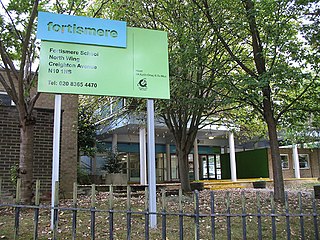
Fortismere School is an 11–18 mixed, comprehensive, foundation secondary school and sixth form in Muswell Hill, London, Greater London, England.
The Marches School is a school with sixth form in Oswestry, north-west Shropshire, England. It was the first academy to be created in Shropshire. It has an enrolment of around 1,200 pupils, in year groups 7-11, key stages 3 and 4, ages 11/12 to 15/16. It has one of the highest achieving records in the United Kingdom.

Notting Hill and Ealing High School is an independent school for girls aged 4 – 18 in Ealing, London. Founded in 1873, it is one of the 26 schools that make up the Girls' Day School Trust. It has a Junior Department of 310 girls and a Senior Department of 600 girls. The current Headmaster is Mr Matthew Shoults. Mrs Silvana Silva is Head of the Junior School.
Northwood College for Girls is an independent day school for girls aged 3 to 18. The school was founded in 1870 and is located today in Northwood, London, England.
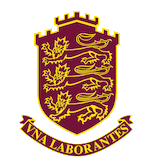
Kings' School is a comprehensive school in Winchester, Hampshire, with approximately 1,650 pupils. The most recent Ofsted inspection brought forward a generally excellent classification with thirty out of thirty-one sections of the report considered outstanding. Kings' School previously had specialist status as a Business and Enterprise College and as a Language College.

Sheffield High School (SHS) is an independent girls' school in Sheffield, South Yorkshire, England part of the Girls' Day School Trust (GDST).
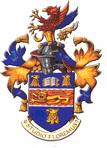
The Henry Box School is a secondary school with academy status located in Witney in Oxfordshire, England. The school has a catchment area of the town of Witney and many surrounding villages such as Ducklington and Aston. It has approximately 1400 students, aged 11–18. The Latin motto of the Henry Box School is Studio Floremus, which can be translated as 'By study we flourish'. In the school's most recent inspection, Ofsted judged the school to be "good".

Norwich High School for Girls is an independent day school for girls aged 3 to 18 in Norwich, England. The school was founded in 1875 by the Girls’ Public Day School Company, which aimed to establish schools for girls of all classes by providing a high standard of academic, moral and religious education. The school is a member of the Girls’ Schools Association and the Headmasters’ and Headmistresses’ Conference. The school reports itself to have one of the best academic results in East Anglia.
Invicta Grammar School is a grammar school with academy status in Maidstone, Kent, England. The school caters for girls between the ages of 11 and 18. Some boys are accepted into the sixth form.
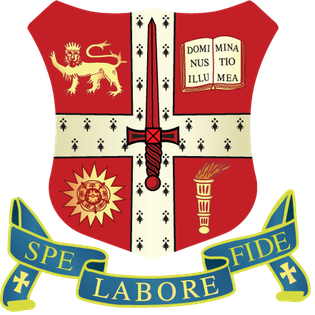
Central Foundation Boys' School is a voluntary-aided comprehensive secondary school in the London Borough of Islington. It was founded at a meeting 1865 and opened the following year in Bath Street, before moving to its current location on Cowper Street in 1869. Originally named The Middle Class School of London, it was renamed in 1890 after the establishment of its trust body, the Central Foundation Schools Trust. Its sister school is Central Foundation Girls' School in Tower Hamlets. Both schools are beneficiaries of the charity Central Foundation Schools of London, which in turn is a beneficiary of The Dulwich Estate, successor to the historic Alleyn's College charity.
Brighton Girls, formerly Brighton and Hove High School, is an independent day school for girls aged 3–18 in the city of Brighton and Hove, East Sussex, England.
Walton Girls' High School and Sixth Form is a co-ed secondary school with academy status for 11-18s, in Grantham, Lincolnshire, England. It is situated in the south-west of the town near the A607 junction with the A1. The school accepts approximately 135 girls a year. In September 2019, the school saw its first boys enter in year 7, previously boys were only in the sixth form.
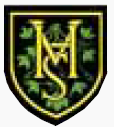
Valentines High School is a coeducational secondary school and sixth form located in the Ilford area of the London Borough of Redbridge, England. It has approximately 1300 pupils and 93 teachers. Valentines has been a teaching school since 2011, and is a member of the Leading Edge partnership programme. In 2006, it was designated as a specialist school for technology and had technology college status.
St Louis Grammar School is a school in Ballymena, Northern Ireland.
The Dover Christ Church Academy, previously known as Archers Court Secondary School is a mixed secondary school and sixth form located in Whitfield, Kent, 4 miles north of Dover. It has academy status and sponsored by Canterbury Christ Church University.

Heathfield School was an independent day school for girls in Pinner in the London Borough of Harrow. It merged with Northwood College in 2014 and the site was taken over by Pinner High School.















